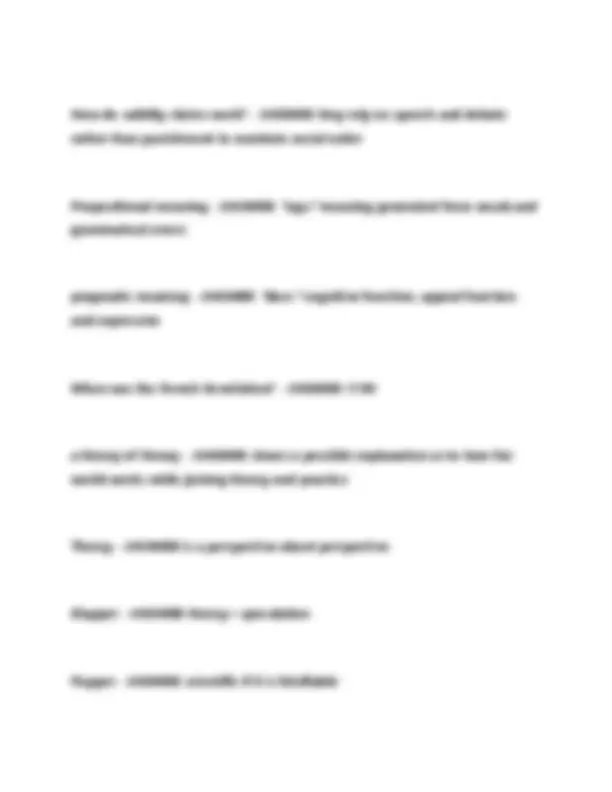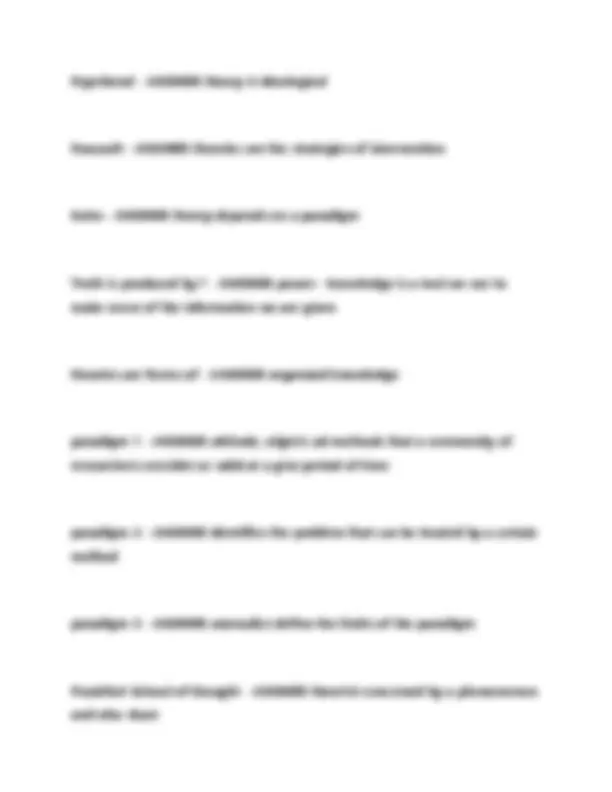





Study with the several resources on Docsity

Earn points by helping other students or get them with a premium plan


Prepare for your exams
Study with the several resources on Docsity

Earn points to download
Earn points by helping other students or get them with a premium plan
Community
Ask the community for help and clear up your study doubts
Discover the best universities in your country according to Docsity users
Free resources
Download our free guides on studying techniques, anxiety management strategies, and thesis advice from Docsity tutors
A series of questions and answers covering key concepts in communication studies, focusing on the frankfurt school, habermas' public sphere theory, and critical theory. it explores the critiques of habermas' work, the ideas of key theorists like adorno and horkheimer, and the nature of theory itself. The questions delve into the historical context of these theories and their implications for understanding modern society and communication.
Typology: Exams
1 / 6

This page cannot be seen from the preview
Don't miss anything!




Public Sphere was introduced in - ANSWER 1962 According to Habermas, the public sphere is the sphere of - ANSWER privateindividuals assembled in a public for the "public use of reason"
the key feature in modern societies? - ANSWER Change Critique on Habermas' Public sphere CMRM - ANSWER 1. Class based 2. Maledominated 3. Racially based 4. mini public spheres
Heidegger Ideals - ANSWER language, the question of being and dominationof science and calculated reason
Cultural Industries (CPC) - ANSWER have a cultural role in creating,producing and commercializing contents
Small group of philosophers under Adorno and Hork. - ANSWER criticaltheorists
Superstructure - ANSWER politics, culture and philosophy How did Fschool differ from Marxism - ANSWER they didn't believe the baseshould decide superstructure because it contradicted itself
Authoritarianism is the horizon of - ANSWER modernity Fschool replaced positive reason with - ANSWER instrumental reason positive reason - ANSWER Two types of societies - ANSWER 1. dominated by institutional frame
Feyerbend - ANSWER theory is ideological Foucault - ANSWER theories are the strategies of intervention Kuhn - ANSWER theory depends on a paradigm Truth is produced by? - ANSWER power - knowledge is a tool we use tomake sense of the information we are given
theories are forms of - ANSWER organized knowledge paradigm 1 - ANSWER attitude, objects ad methods that a community ofresearchers consider as valid at a give period of time
paradigm 2 - ANSWER identifies the problem that can be treated by a certainmethod
paradigm 3 - ANSWER anomalies define the limits of the paradigm Frankfurt School of thought - ANSWER theorist concerned by a phenomenonand who share
what Fschool theorist share (PPTI) - ANSWER command definition ofphenomenon, the problems to resolve, the techniques and the institutional place fschool divide - ANSWER 1. administrative and critical Administrative - ANSWER behavioral and functional critical theories - ANSWER view the media as a tool that circulate ideologiesof the elites
Debate and habermas - ANSWER each given opinion Habermas was the RA for - ANSWER Adorno Habermas says the public sphere emerges with - ANSWER public society CMRM critique on Habermas public spheres - ANSWER class, male, racial andmini public spheres